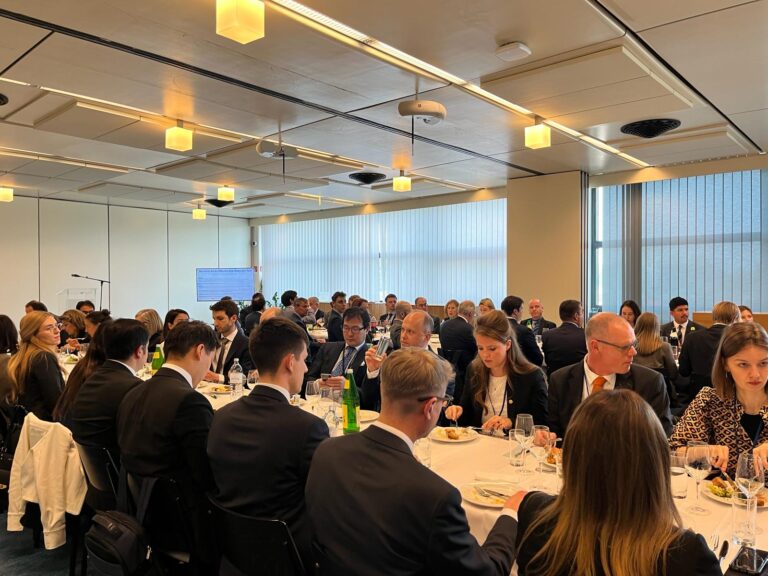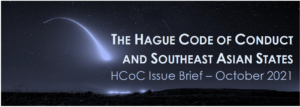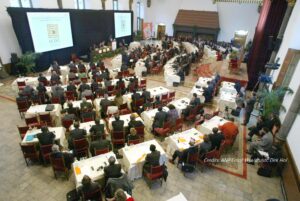The HCoC as an effective risk reduction tool
11 April 2024
Vienna
On 11 April 2024, the FRS organised a side event in the margins of the HCoC Annual Regular Meeting.

AGENDA
At a time of crisis of the arms control architecture, the Hague Code of Conduct plays an important role to bring transparency on potentially destabilising weapons and behaviours. In addition to its official purpose of curbing the proliferation of ballistic missiles, it is now key as part of risk reduction measures.
This side event assessed this function and discussed the specific dimension of the HCoC as a risk reduction measure.
Introduction
- Mr Stefan Tressing, European External Action Service (EEAS), European Union
- Amb. Eoin O’Leary, Ambassador and Permanent Representative of Ireland to the International Organisations in Vienna, HCoC Chair 2023-2024
- Amb. Alex Wetzig Abdale, Ambassador and Permanent Representative of Chile to the International Organisations in Vienna, HCoC Chair 2024-2025
Main session: Upcoming trends in missile proliferation
MODERATOR:
- Mr Alexandre Houdayer, Secretary General, FRS
PANELLISTS:
- Ms Pamela Durham, Director, Office of Missile, Biological, and Chemical Weapons Nonproliferation, U.S. Department of State
- Mr Takanobu Sato, Assistant Director, Non-Proliferation, Science and Nuclear Energy Division, Disarmament, Non-Proliferation and Science Department, Ministry of Foreign Affairs of Japan
- Dr Marion Messmer, Senior Research Fellow, International Security Programme, Chatham House
- Ms Nivedita Raju, Researcher, Weapons of Mass Destruction Programme, SIPRI



